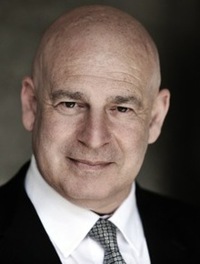Group Dynamics- Steven Falk
August 17, 2012
The very public falling-out between Kevin Pietersen and the ECB and its carry-over into the personal dynamic of the England cricket team raises several issues relevant to all sports clubs.
1. The importance of “respect” in maintaining changing room harmony
There is no obligation for every team member to be best friends. Indeed, there are many instances of highly successful sporting partnerships based on mutual dislike. Geoffrey Boycott’s relationship with the rest of the England team and the enmity between Andrew Cole and Teddy Sheringham in Manchester United’s treble-winning team are legendary.
You don’t have to like someone to respect their abilities and contribution to the success of the team. However, without this foundation, disharmony can corrode team spirit leading to a complete breakdown in trust. And this is a quality without which no team enterprise can succeed.
2. The adoption of mutual goals to achieve team success
Where teams work together in pursuit of a single commonly held objective the chance of success is greatly improved. The achievements of Team GB Cycling at London 2012 is the product of a long-term strategy rigorously implemented by Dave Brailsford and his team of athletes, coaches, technologists and sports scientists.
It is unlikely that Sir Chris Hoy’s demotion from the sprint event would have been so magnanimously accepted had he not :-
(a) trusted and respected the decision of the team leader
(b) believed it to be in the best interests of the team as a whole
(c) viewed it as consistent with the team’s shared objectives
3. The effectiveness of personal communications in conflict resolution
In an age where celebrity sports heroes communicate instantly with their hordes of adoring followers on Twitter and Facebook and issue statements on YouTube, it is hardly surprising that PR images can be enhanced or possibly compromised forever by pressing send before engaging brain.
The accessibility of immediate electronic gratification should not blind individuals to the fact that direct, personal communication is still the most effective way to resolve conflict. Words bluntly expressed face-to-face in private can overcome any potential misunderstanding or misinterpretation of a tweet or text message sent unadvisedly.
About Steven Falk:
A graduate in Psychology from Manchester University, Steven started his career in the motor industry before taking an MBA at Warwick University Business School. There followed commercial roles at Astra Zeneca, United Utilities, Great Universal Stores and MBNA Bank where he worked on a range of assignments in the UK, Eastern & Western Europe, North America and Asia.
From 2001 to 2009, Steven was Marketing Director at Manchester United Football Club. Steven served as a member of the Executive Committee of Manchester United and a board director of Manchester United Foundation, the club’s charitable trading arm. In January 2010, he launched Star Sports Marketing, a specialist sports marketing consultancy.
For a confidential conversation on how Star Sports Marketing can help you to devise and implement an effective brand strategy. Visit www.starsportsmarketing.com or email steven.falk@starsportsmarketing.co.uk
{jcomments on}


